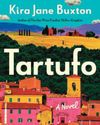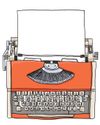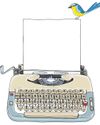
Aft er all, if you were to ask a film buff for their highest recommendation for a weekend watch, they’d probably be tempted to off er up something obscure, something truly off the beaten path … but ultimately, they’d likely tell you to watch Th e Godfather. And rightly so.
When it comes to the Godfather of American letters, you’ve gotta hand it to Papa. Because in the end, story trumps all—and his incredible house in Key West, Fla., is where a key part of his literary legacy, and his legend as we know it today, was truly forged.
When Hemingway came to the island in April 1928 for the first time, he wasn’t yet the larger-than-life novelist. Rather, he was a journalist and war correspondent who had just published Th e Sun Also Rises— and, well, he didn’t really have a great fortune under his belt (something not wholly unfamiliar to many the working journalist). But with his wife Pauline, what he did have was an Uncle Gus—and Uncle Gus had given the couple a brand-new Ford Roadster. Problem was, it wasn’t ready yet, so Hemingway and his wife hunkered down in a Key West apartment for a few weeks. (Where Hemingway sat down and banged out A Farewell to Arms, as one does.)
Away from his typewriter, he palled up with hardware store owner Charles Thompson, who introduced him to big-game fishing. Coupled with the quaintness of the community, the Hemingways became smitten with the town—and in 1931, Uncle Gus bought a dilapidated 80-year-old house for $8,000 in back taxes, and gave it to them, as one does.
Denne historien er fra July - August 2023-utgaven av Writer’s Digest.
Start din 7-dagers gratis prøveperiode på Magzter GOLD for å få tilgang til tusenvis av utvalgte premiumhistorier og 9000+ magasiner og aviser.
Allerede abonnent ? Logg på
Denne historien er fra July - August 2023-utgaven av Writer’s Digest.
Start din 7-dagers gratis prøveperiode på Magzter GOLD for å få tilgang til tusenvis av utvalgte premiumhistorier og 9000+ magasiner og aviser.
Allerede abonnent? Logg på

What Is Your Story Question?
Revision and editing advice to take your first draft to the next level.

Writing for the People We Hope to Become
Elisa Stone Leahy's new middle-grade novel, Mallory in Full Color, tackles the in-between moments of adolescence, when who we are and who we want to become collide.

Creating Community
Whether hot off the presses or on the shelves for years, a good book is worth talking about.

Pat Barker
The Booker Prize-winning author of Regeneration shares the role characters play in developing novel ideas and explains what appeals to her about reimagining mythology.

How to Write in Different Genres
Emiko Jean and Yulin Kuang share tips and strategies for how they successfully write in different genres and mediums.

The Shortest Distance Between Two Points
Ten tips for writing a novel with 100-word stories.

Mayfly Marketing
How to sell your novel in a short-attention-span world.

"You'll be a great essay".
How to write six types of personal essays by finding the funny in your life.

The Idea Factory
Tired of staring at an empty screen? Unlock your inner fiction generator with these surprising inspiration techniques.

Seinfeld Was Right: That's a Story
Use mundane moments from everyday life to create stories that pack a punch.